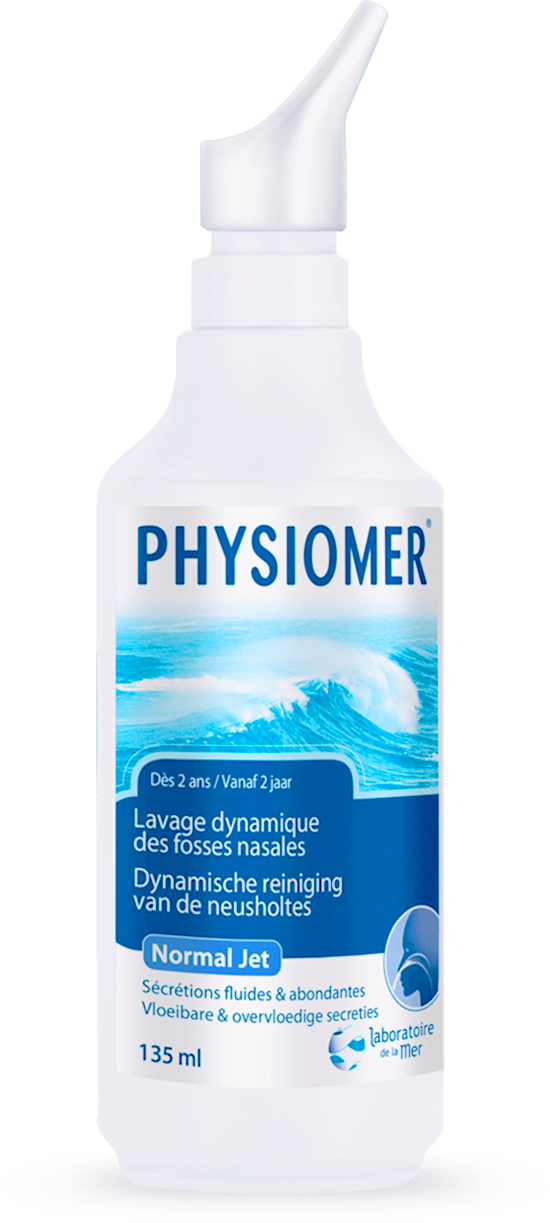What is allergic rhinitis
Inflammation of the nasal mucous membrane after repeated contact with one or more allergens is called allergic rhinitis. This manifests itself in the appearance of at least two of the following symptoms: nasal obstruction, runny nose, watery eyes, pruritus (itchy skin).
Possible complications of allergic rhinitis
Allergic rhinitis can have a considerable negative effect on quality of life, such as by causing sleep disturbance. People prone to allergic rhinitis are also more susceptible to ENT (ear, nose and throat) infections.

How is allergic rhinitis best treated?
The first course of action is to avoid contact with the allergen. Desensitisation (or allergen immunotherapy) remains the only treatment to address the actual cause of the allergy. ENT specialists recommend saline solutions together with medical treatments for allergic and non-allergic (occupational) rhinitis.
To ease symptoms during an outbreak of allergic rhinitis symptoms, use PHYSIOMER® Hypertonic 2-3 times daily. PHYSIOMER® reduces nasal symptoms by 68% in patients suffering with allergic rhinitis1.
As an adjuvant therapy, PHYSIOMER® also improves efficacy and reduces use of topical treatments. Using PHYSIOMER® reduces concomitant use of nasal corticosteroids2.
How can allergic rhinitis be prevented?
PHYSIOMER® Normal Jet and Strong Jet help to prevent the onset of an allergic attack and control the spread of inflammation. PHYSIOMER® offers many advantages to allergic rhinitis sufferers:
- A decongestant action;
- A treatment that does not cause dryness and carries no risk of dependency;
- A natural treatment that may be used during pregnancy and breastfeeding, as well as in high-risk patients (including diabetics, patients with heart conditions or thyroid disorders, elderly and multi-medicated patients, asthmatics).
1.Strnad et al, 2016 in Rev. Laryngol. Otol. Rhinol. (80 patients, Nasal Index Score, 6 weeks period)
2.Strnad P. Efficacy of nasal irrigation with 2.2% hypertonic seawater in the treatment of chronic rhinosinusitis in adults. Rev Laryngol Otol Rhinol. 2016;137,1:3-10.



